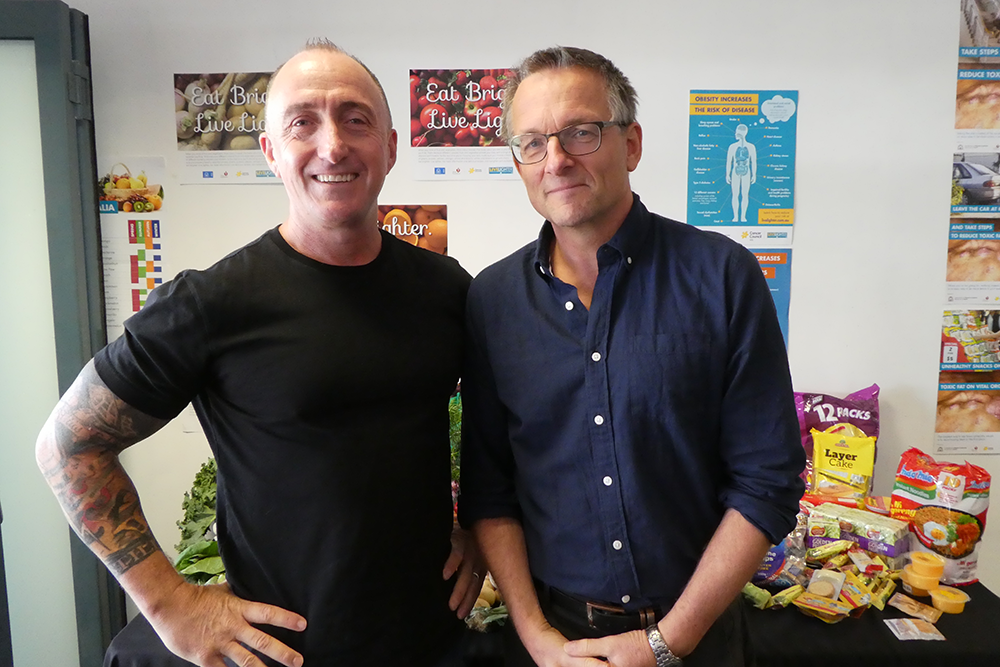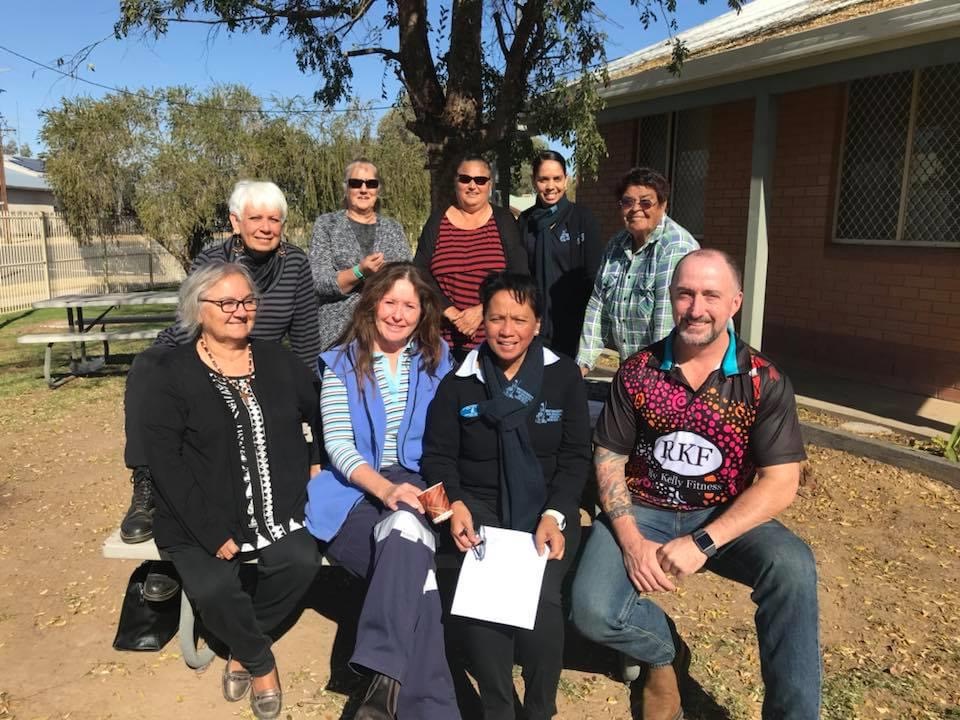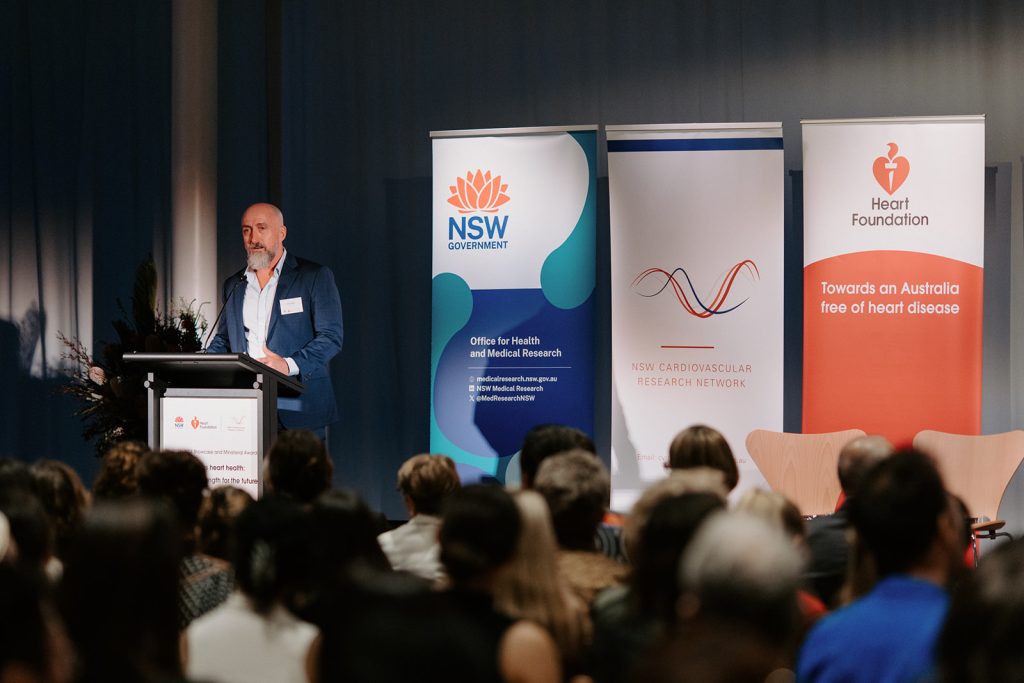Improving Outcomes For People With Diabetes Type 2
Ray Kelly, Proud Gomeroi man, Exercise Physiologist and Lead Researcher for Too Deadly for Diabetes

When Michael Mosley was filming his SBS series Australia’s Health Revolution, he was so impressed by Ray Kelly’s work supporting Indigenous people with type 2 diabetes, that he invited him to appear in a segment on the show. Once they met in person, Mosley’s admiration only grew, as Kelly explained that he wanted to do more than assist people to manage their type 2 diabetes; he wanted to help them reverse it. As this was Mosely’s mission too, he invited Kelly to co-host the three-part TV series. The content of the show closely mirrored the aims of the evidenced-based approaches that underpin Too Deadly for Diabetes, the 10-week program that Kelly developed, which recently received a funding boost from NSW Health. The program educates participants about diabetes and healthy lifestyle habits while supporting them to engage in regular exercise and adopt healthy nutrition choices through tailored meal plans. “It has been provided mostly through Aboriginal medical services across 16 medical centres in regional NSW including Bourke, Brewarrina, Walgett, Coonamble and Dubbo,” says Kelly.
Too Deadly for Diabetes, has had very beneficial outcomes for participants, leading to a reduction of high blood glucose levels and less need for medication use by Aboriginal people with type 2 diabetes. “I became motivated to do this work by the strong history of type 2 diabetes and cardiovascular disease in my family,” says Kelly, who completed a Bachelor of Arts in Human Movement at the University of Technology in Sydney and worked as an elite sports trainer. In 2019, his commitment and results led him to be recognised as Exercise Physiologist of the year by Exercise and Sports Science Australia (ESSA). “The work of nutritionist Kerin O’Dea also changed my career forever, especially her study showing that Aboriginal people could turn around type 2 diabetes in seven weeks,” he says.

Early in his career, Kelly saved up to attend conferences about health issues such as obesity and diabetes. Wanting to help people make that enormous life change, in 2010, he established a chronic disease clinic that provided bulk-billed services to all members of the public. While his patients were achieving great health outcomes, the health of those in regional and remote Aboriginal communities was increasingly declining. So in 2016, to focus on showing what Aboriginal people could achieve if given the right information and support, he founded Too Deadly for Diabetes. “The aim of the program has been to show how effective diet and physical activity can be within the primary care setting and improve the advice given to Aboriginal people living with type 2 diabetes and cardiovascular disease,” explains Kelly, who has also completed a Bachelor of Research focussed on reversal of Type 2 diabetes in the Aboriginal community.
As well as conducting research for the program, Kelly trains GPs, nurses and allied health staff in best techniques and approaches for facilitating the effective localised lifestyle program. “The program has led to extremely positive health outcomes, including a total collective weight loss of participants that has exceeded 5,800kg,” he says. It has also led to substantial reductions of 1.6% in participants’ HbA1c – an important blood test reading that gives an indication of how high blood glucose levels have been over periods of three to six months. “During our program we see some participants reduce or eliminate medications while improving their HbA1c,” Kelly says. “Even those experiencing type 2 diabetes for many years who require medication see a reduction of 50%-80% in their insulin dose, along with a reduction in their HbA1c.”

This improvement has also impacted other areas of participant health such as blood pressure, physical fitness, mobility, and improved mental health. “Seeing these results, when NSW Minister for Regional Health, Ryan Park, visited our program at Coonamble in 2023, he reached out soon afterwards and pledged funding from NSW Health to enable the program to be expanded to run in Tamworth and Werris Creek,” says Kelly.
Use of co-design to draw on the knowledge and lived experience of Aboriginal people within the community, has been pivotal to the success of Too Deadly for Diabetes. “This approach enables us to listen to local health professionals and community members so that they can explain the barriers for achieving quality health outcomes in their region,” Kelly says. “We then discuss potential strategies to minimise or eliminate the barriers. From there, we develop a program, then we support their team as they implement it. At completion, we evaluate the program and discuss how we can make further improvements.”
Kelly believes it is an exciting time to be involved in working to reduce chronic disease for Aboriginal and Torres Strait Islander people. “But it is imperative that Aboriginal people have greater control over how healthcare funding is spent and the way programs are provided,” he points out. “The only way the health gap will improve is if Aboriginal people are leading the changes. We also have to accept that the way we have been doing things hasn’t worked and focus on what does work, guided by what is working in the clinic!”
At the CVRN showcase and awards evening, Indigenous health leaders discussed the life-changing impacts and outcomes of their outstanding ‘ in-community’ work. Learn more.
Updated 1 year ago